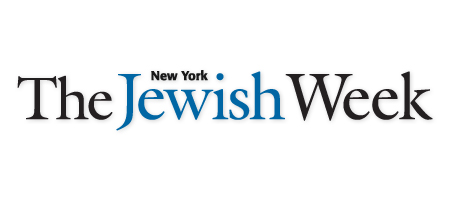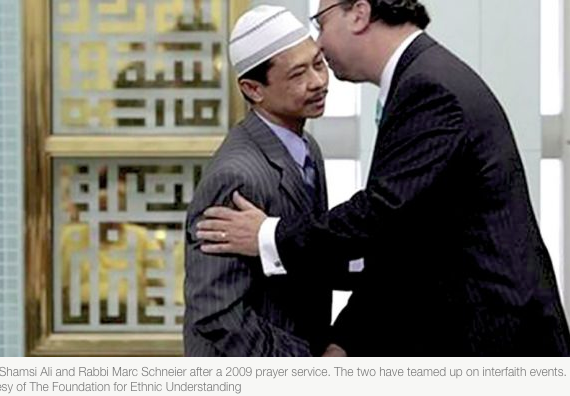
The Jewish Week
By Stewart Ain
April 3, 2018

Bound together in part by the country’s nativist turn, Jews and Muslims here have forged closer ties as the number of anti-Semitic and anti-Muslim incidents have spiked in the last year. Groups like the Sisterhood of Salaam-Shalom have grown rapidly since the candidacy of Donald Trump and his election in 2016.
So perhaps it’s no surprise that a new poll that examines the opinions and behaviors of both groups finds that Jews and Muslim Americans have much in common, and the more observant they are, the smaller the gaps.
Among some of the similarities, a majority of both groups oppose the Trump administration’s travel ban and agree that Muslims speaking out against extremism can have a positive impact by promoting open-minded understanding and improving perceptions of Muslims and Islam in the U.S. Among Jews and Muslims who interact with each other somewhat, 44 percent of Jews and 48 percent of Muslims expressed that view. But among those of both faiths who frequently interact with the other, that figure jumps to 55 percent among Jews and 53 percent among Muslims.
And both Jews and Muslims see the merits in combining forces and are optimistic for a more tolerant future.
In another similarity, 59 percent of Jews and 55 percent of Muslims said they had been discriminated against because of their faith.
The study — released late last month by the Foundation for Ethnic Understanding and based upon a national online survey of 500 Jews and 500 Muslims — found that the greatest difference was their view of Jerusalem as the capital of Israel. Among Jews, 48 percent support Jerusalem as Israel’s capital while 63 percent of Muslims oppose it. As might be expected, Orthodox Jews were the most supportive at 82 percent, followed by Conservative Jews at 50 percent, Reform Jews at 42 percent and Jews who profess no denomination at 40 percent.
The two groups were split also when it came to their opinions about American support for Israel — 45 percent of Jews and only 16 percent of Muslims said it was the proper level of support, while fully 49 percent of Muslims said the U.S. was too supportive.
Rabbi Marc Schneier, president of the foundation, said that although it had been believed that Muslim-Jewish relations were in conflict, “this study shows that they are in a state of cooperation.” He said he believed the study was the first of its kind.
There were clear differences when it came to family concerns. Among Muslims, 31 percent said an issue of most concern was health care, followed by safety and security of their family (27 percent) and religious freedom (24 percent). Among Jews, 44 percent cited health care as their No. 1 concern. But only 18 percent listed the safety and security of their family as an issue of most concern and only 8 percent listed religious freedom.
The survey was conducted by PSB Research and sponsored by Ory Capital Partners, whose managing partner, Ahmed Y. Al-Rumaihi, said the survey “underscores the power of faith in building bridges of mutual understanding.”
Copyright © 2025 Foundation For Ethnic Understanding. All rights reserved. | Privacy Policy